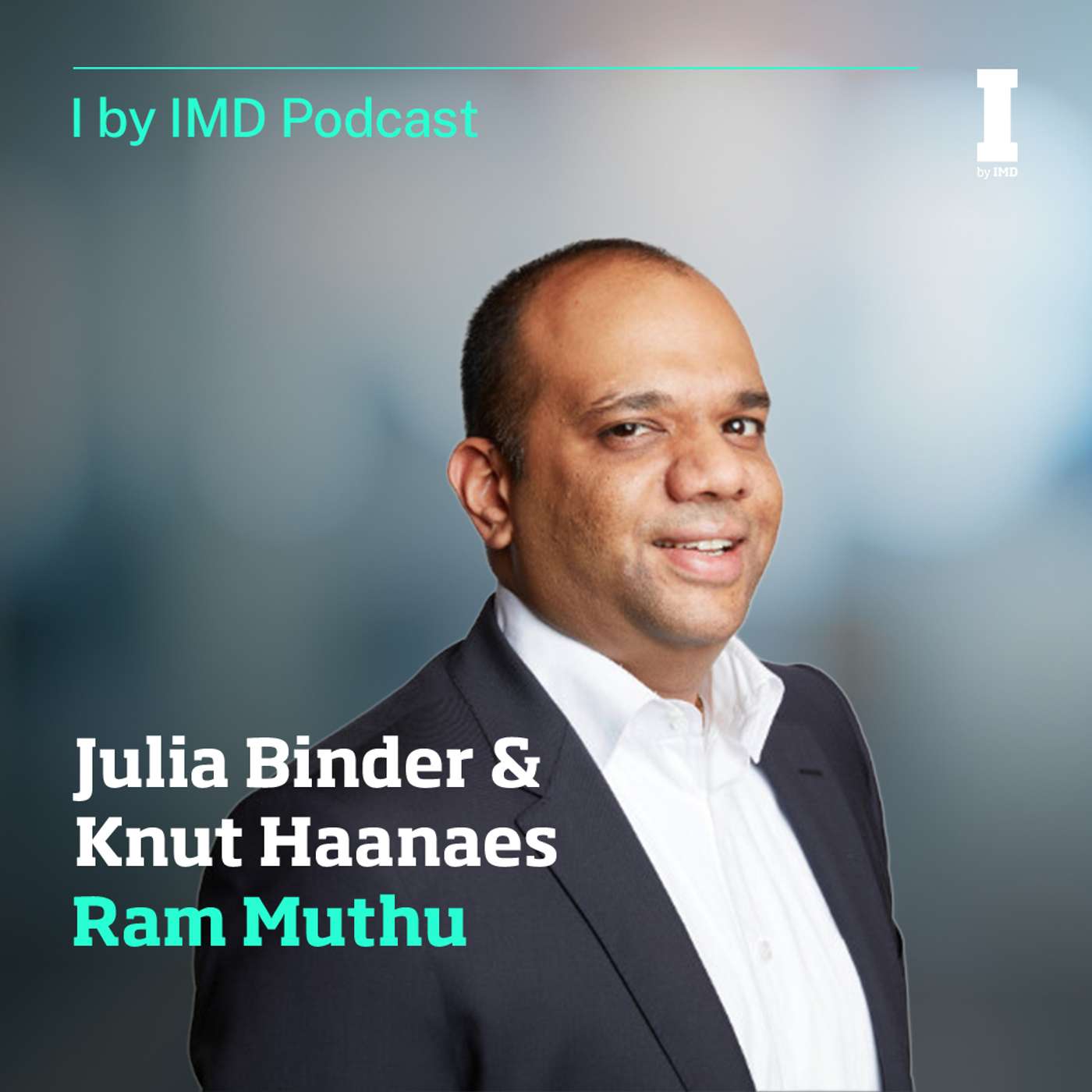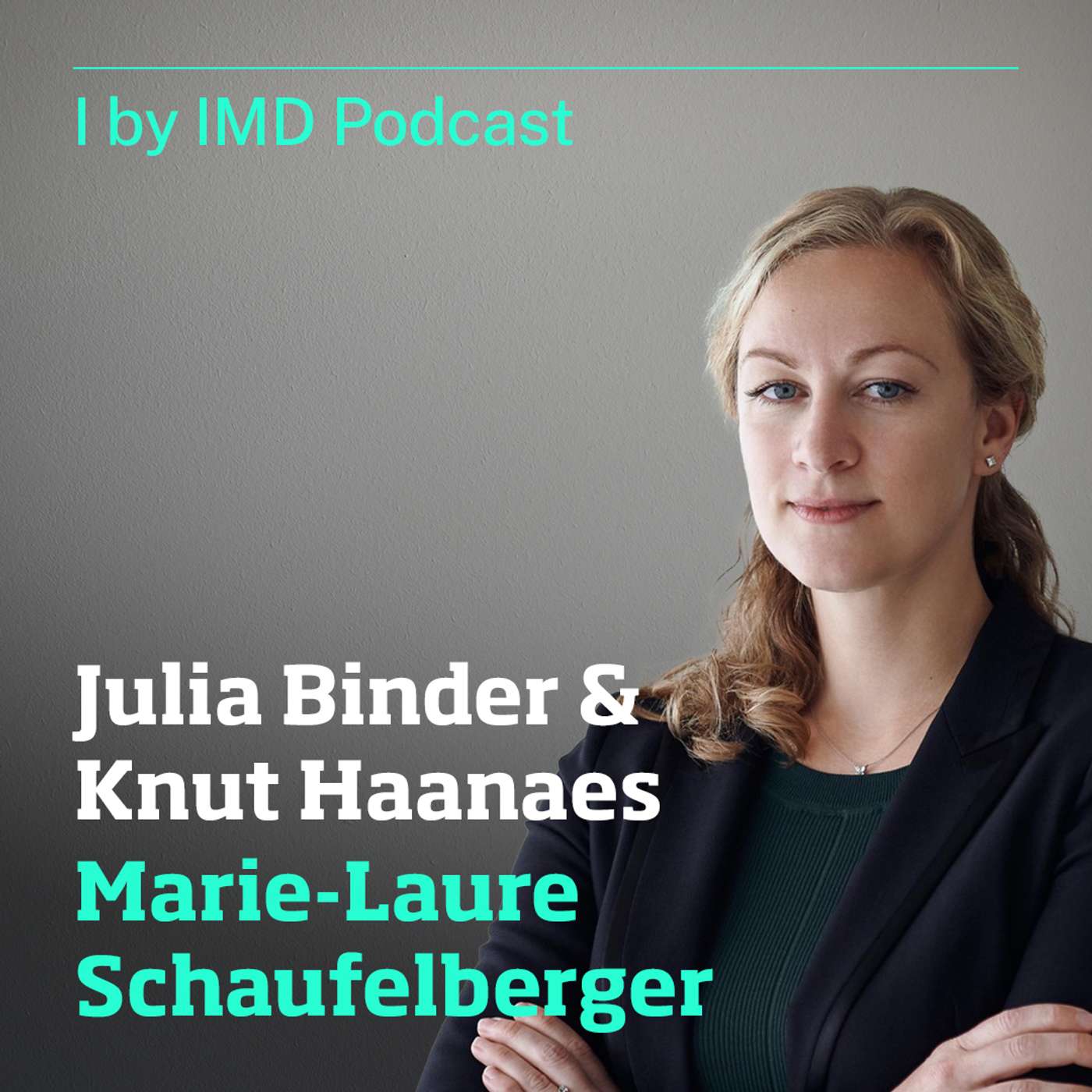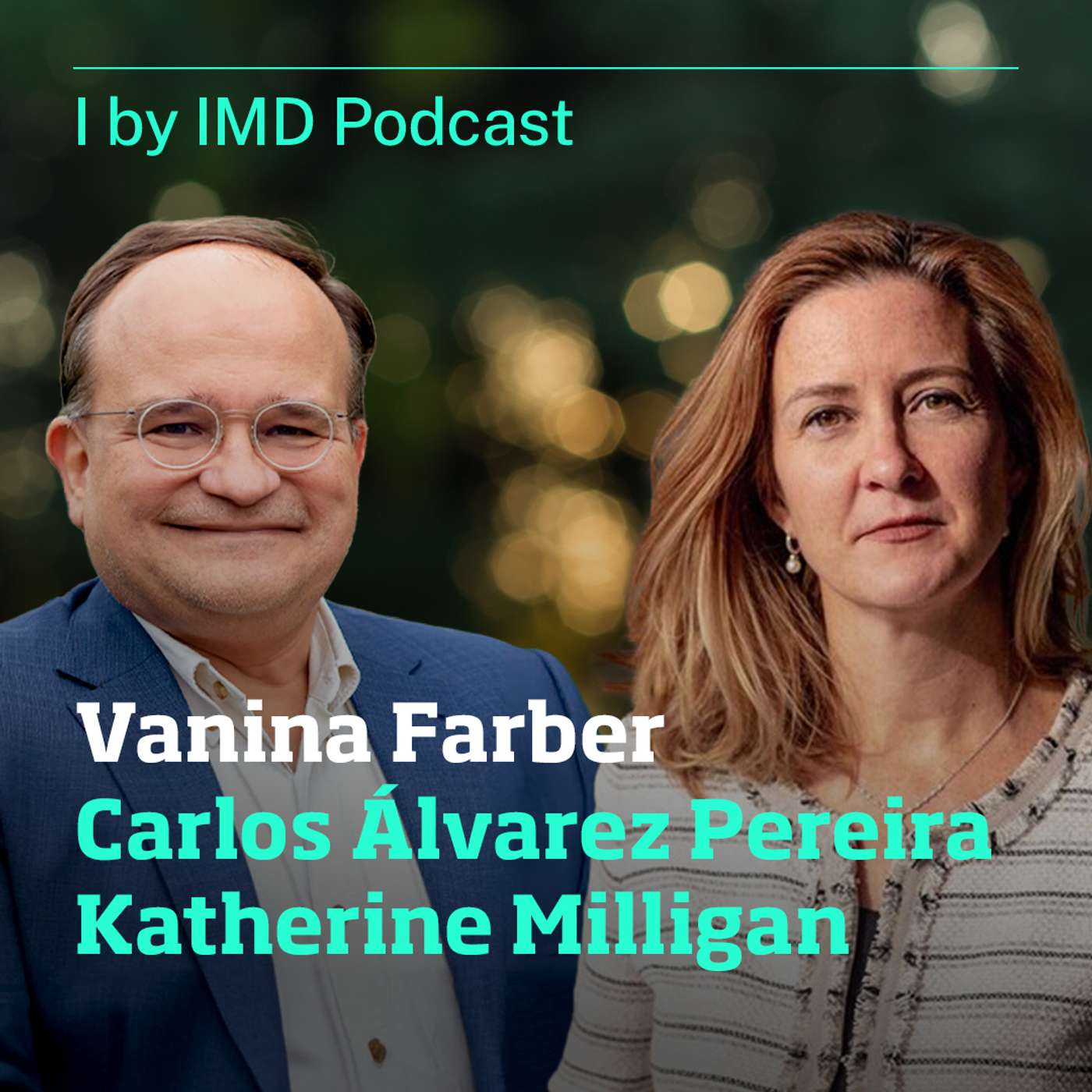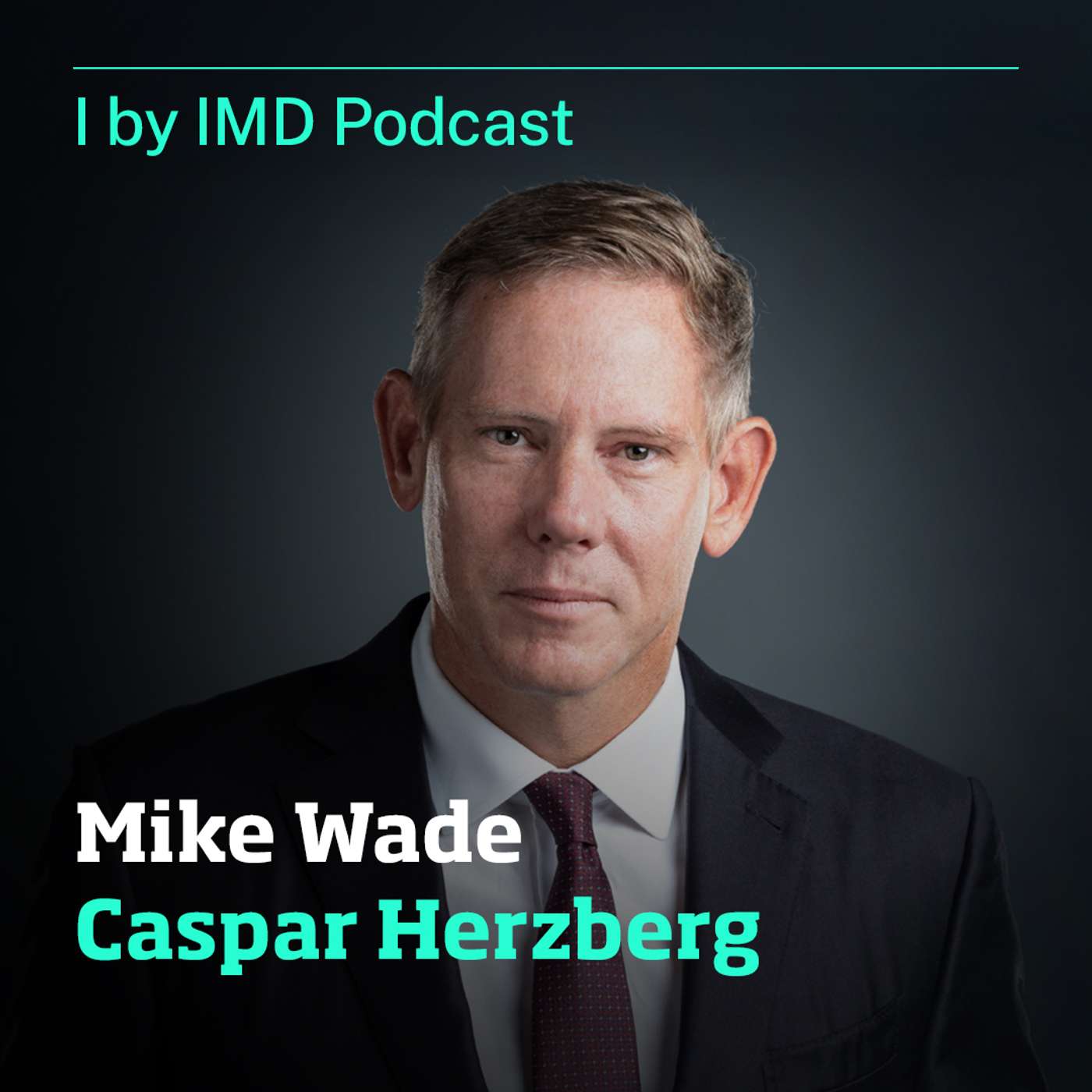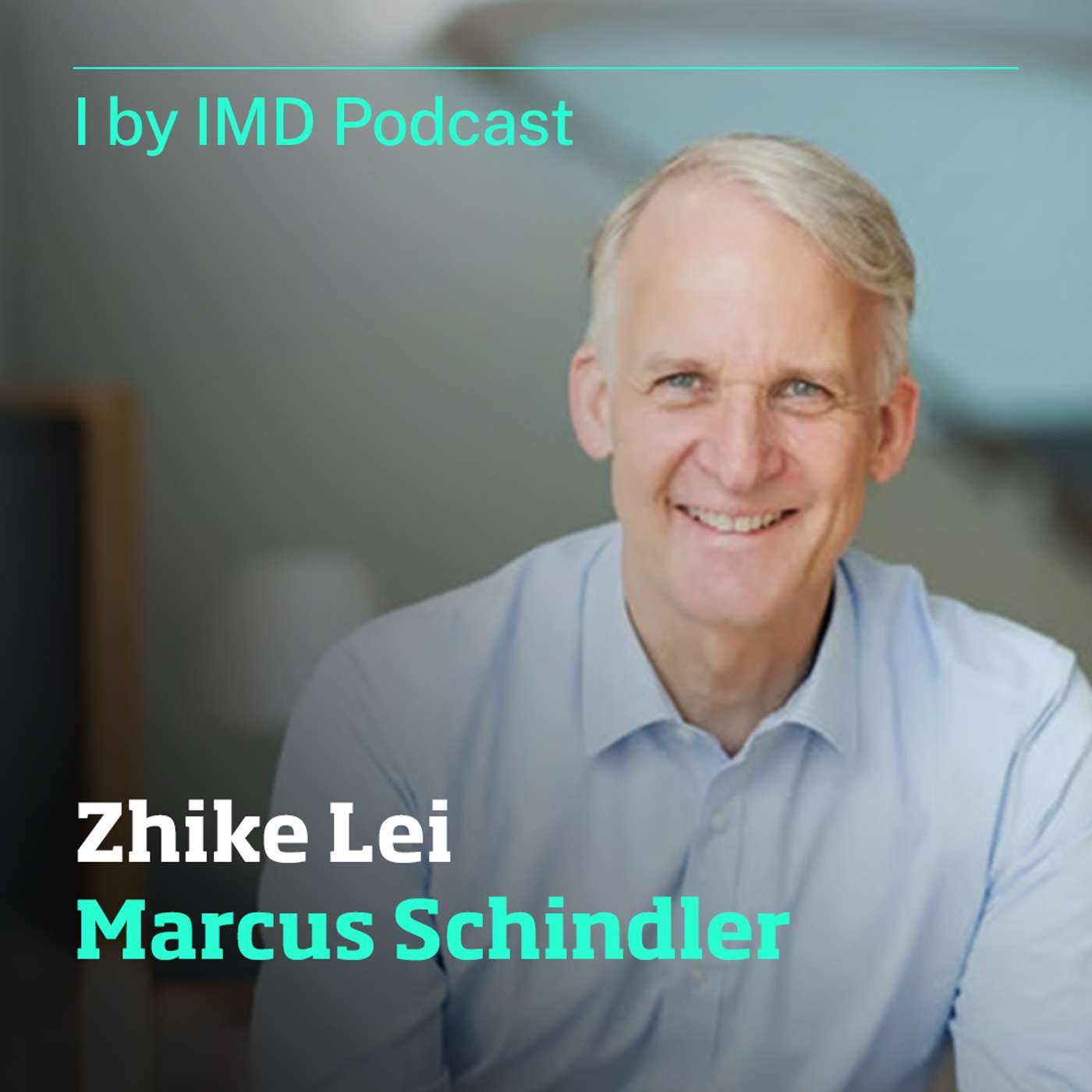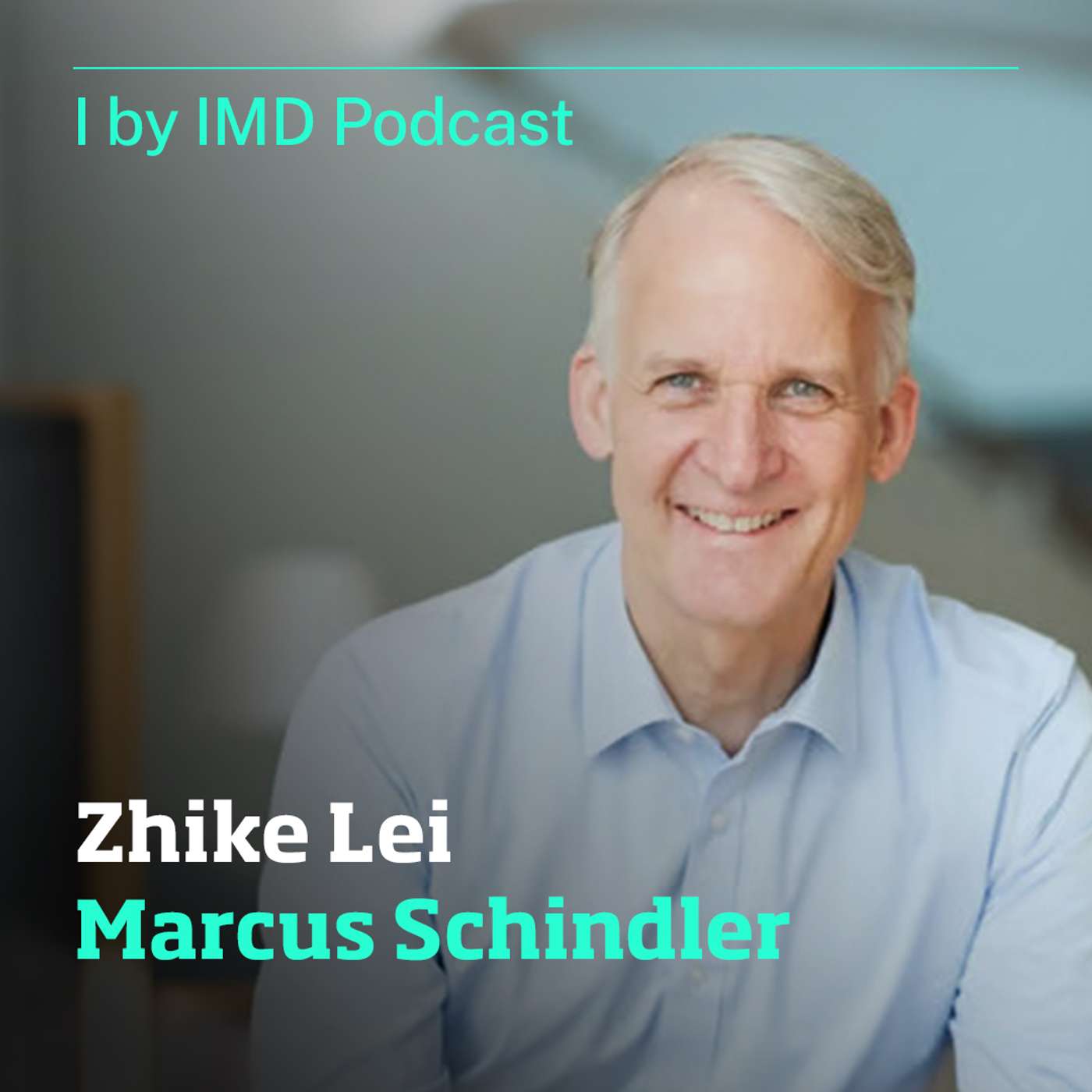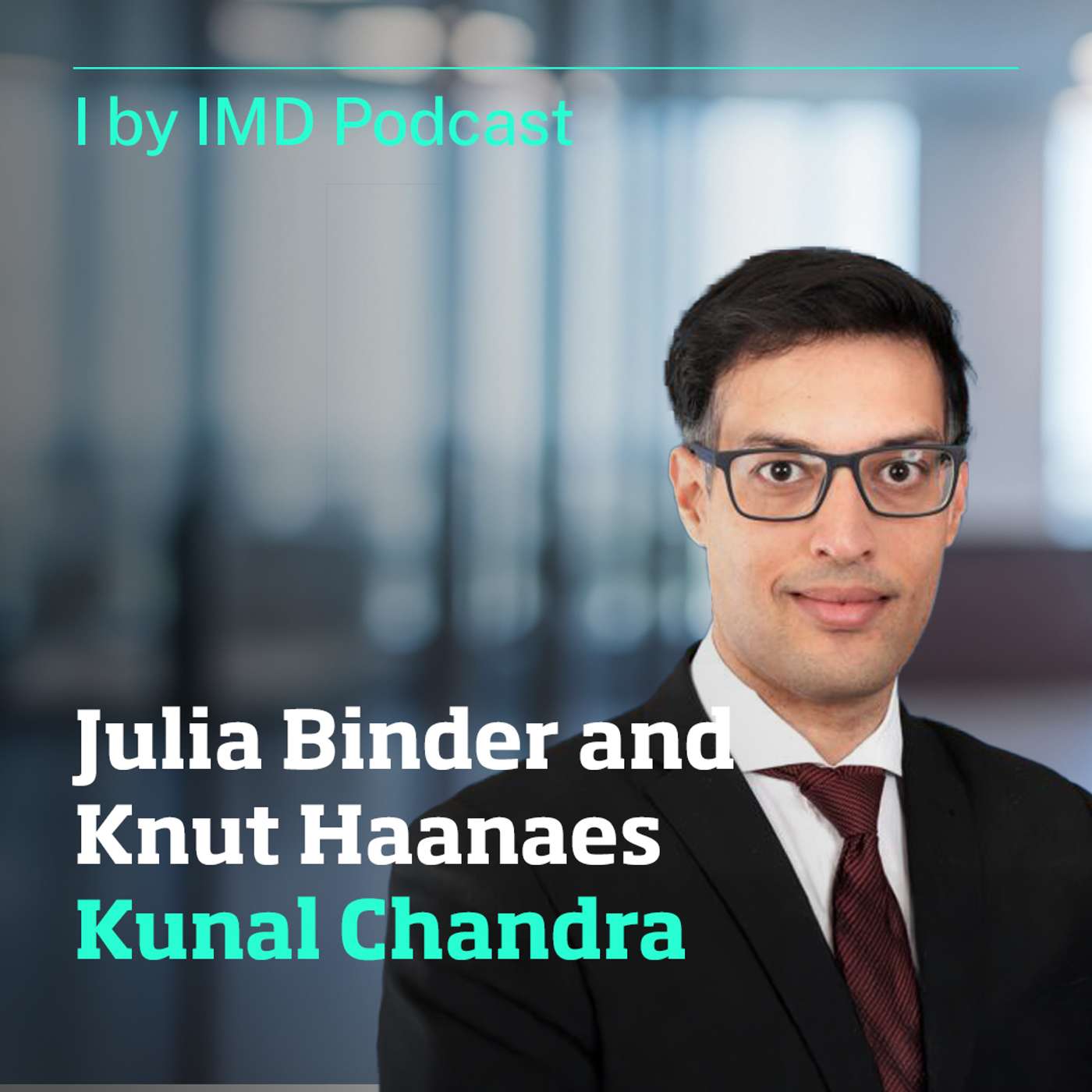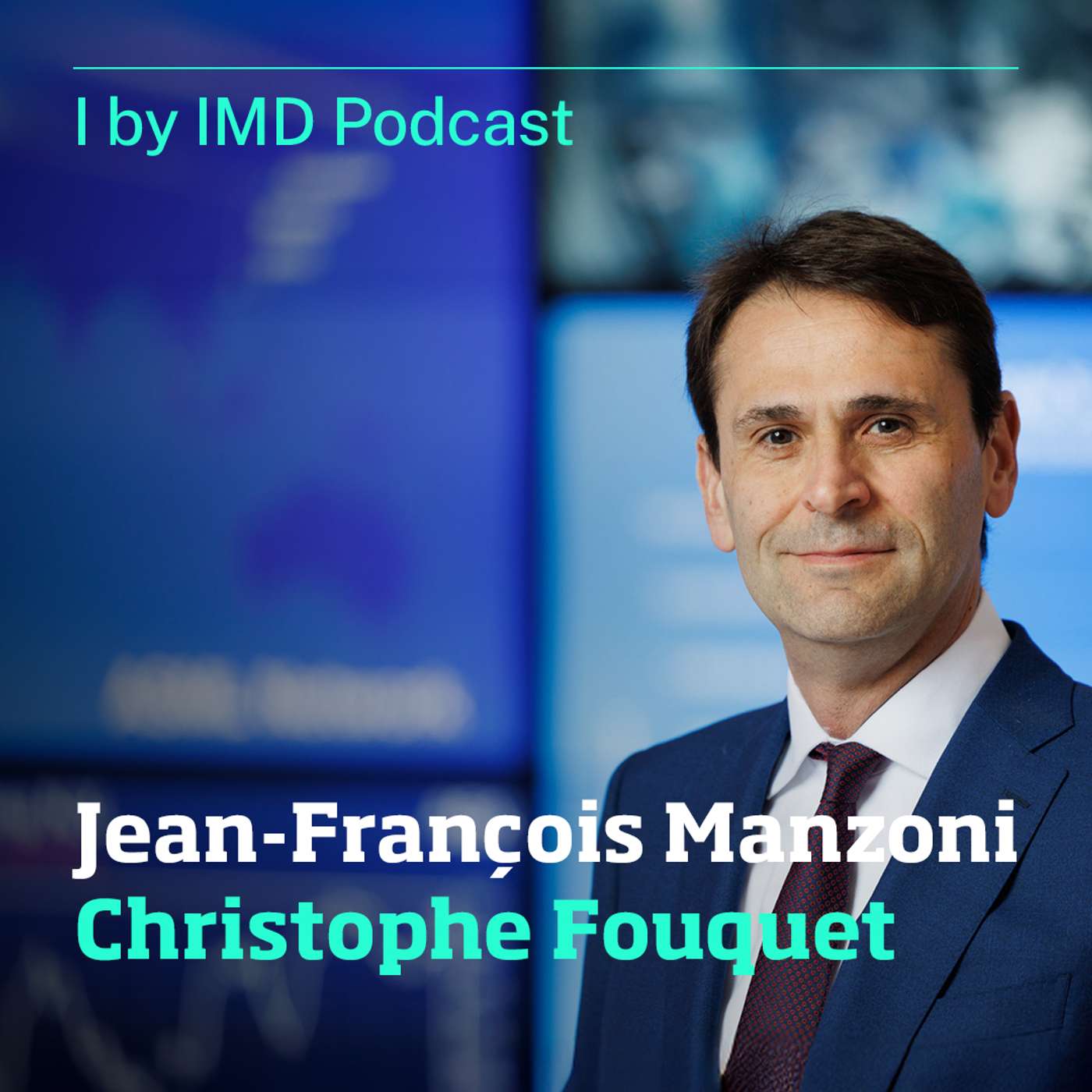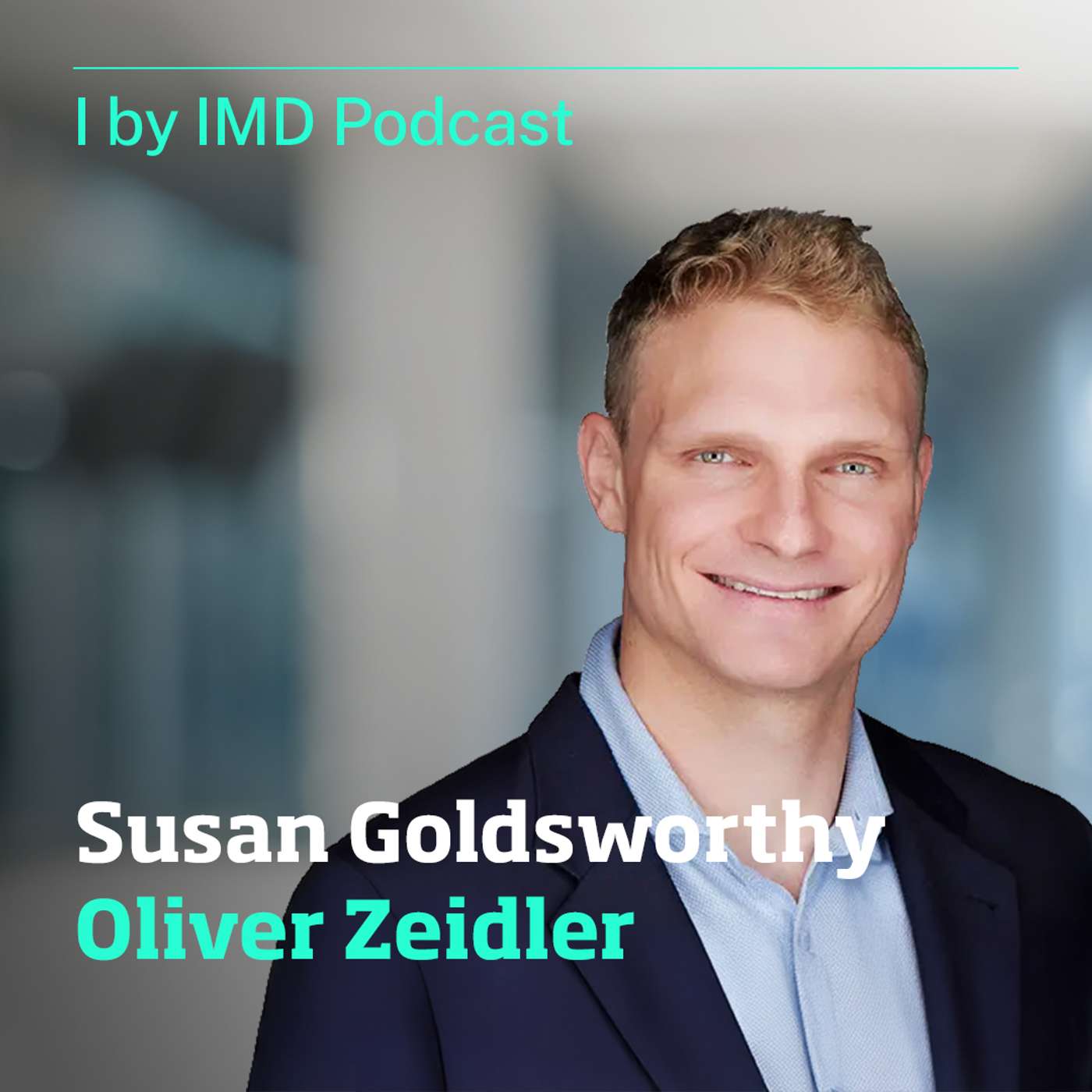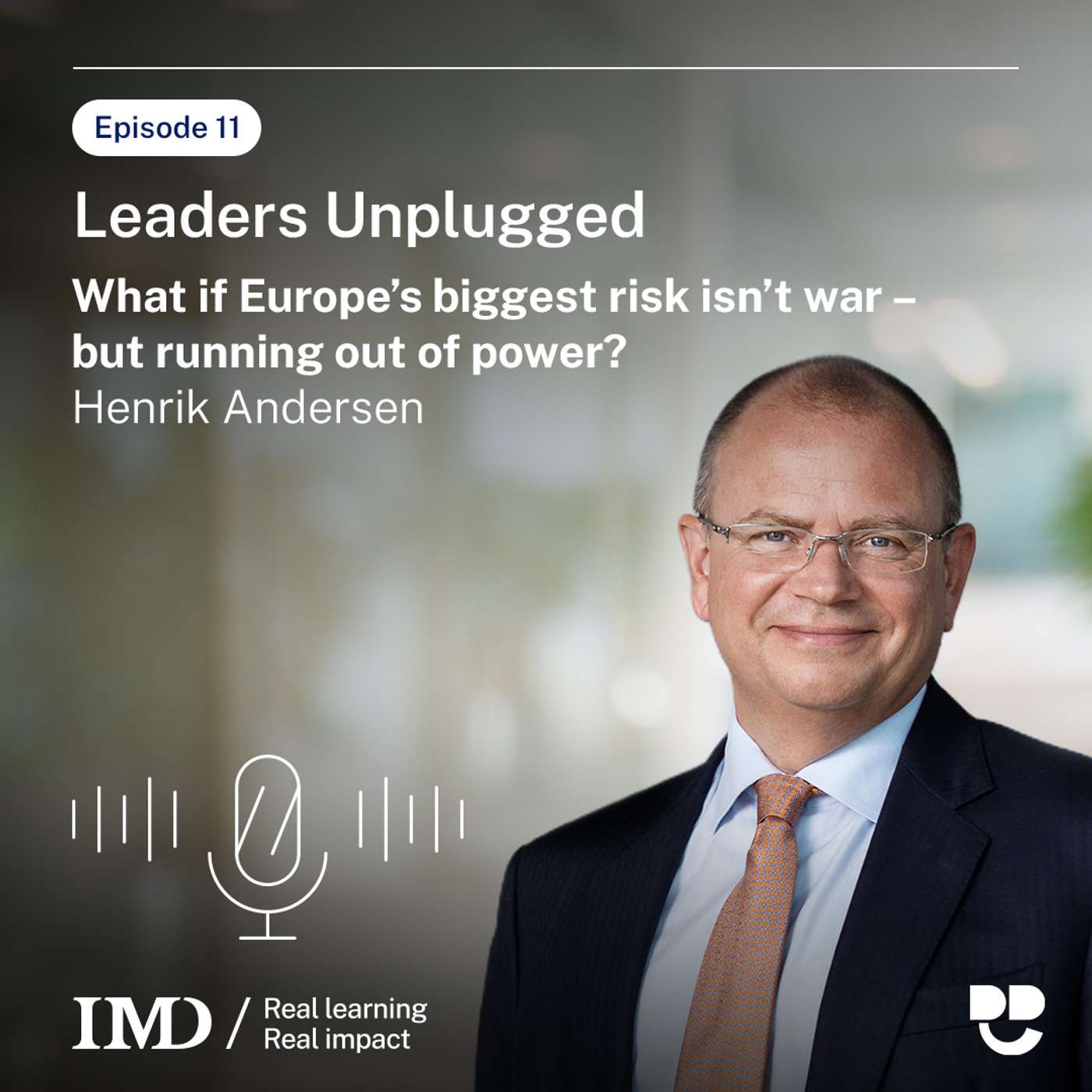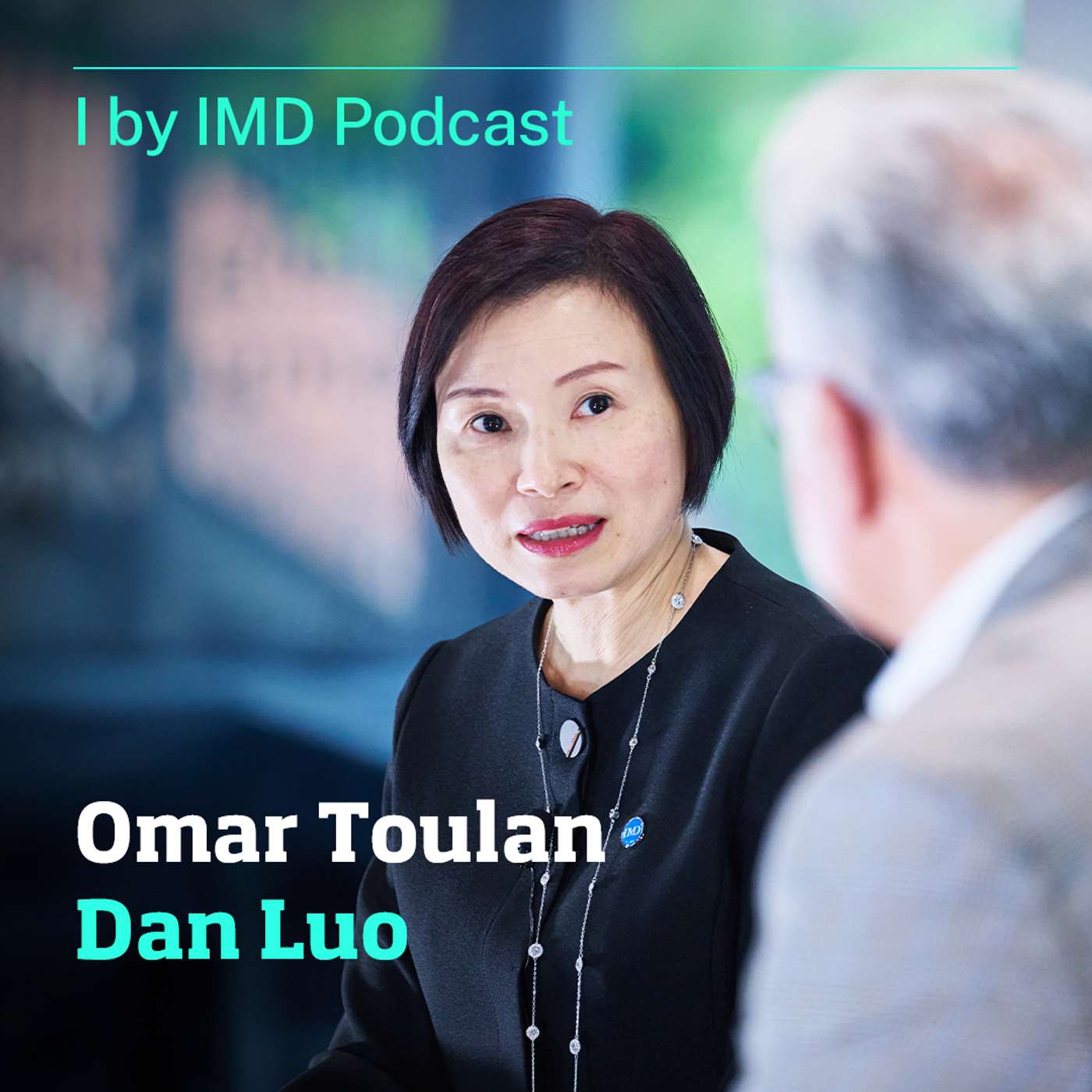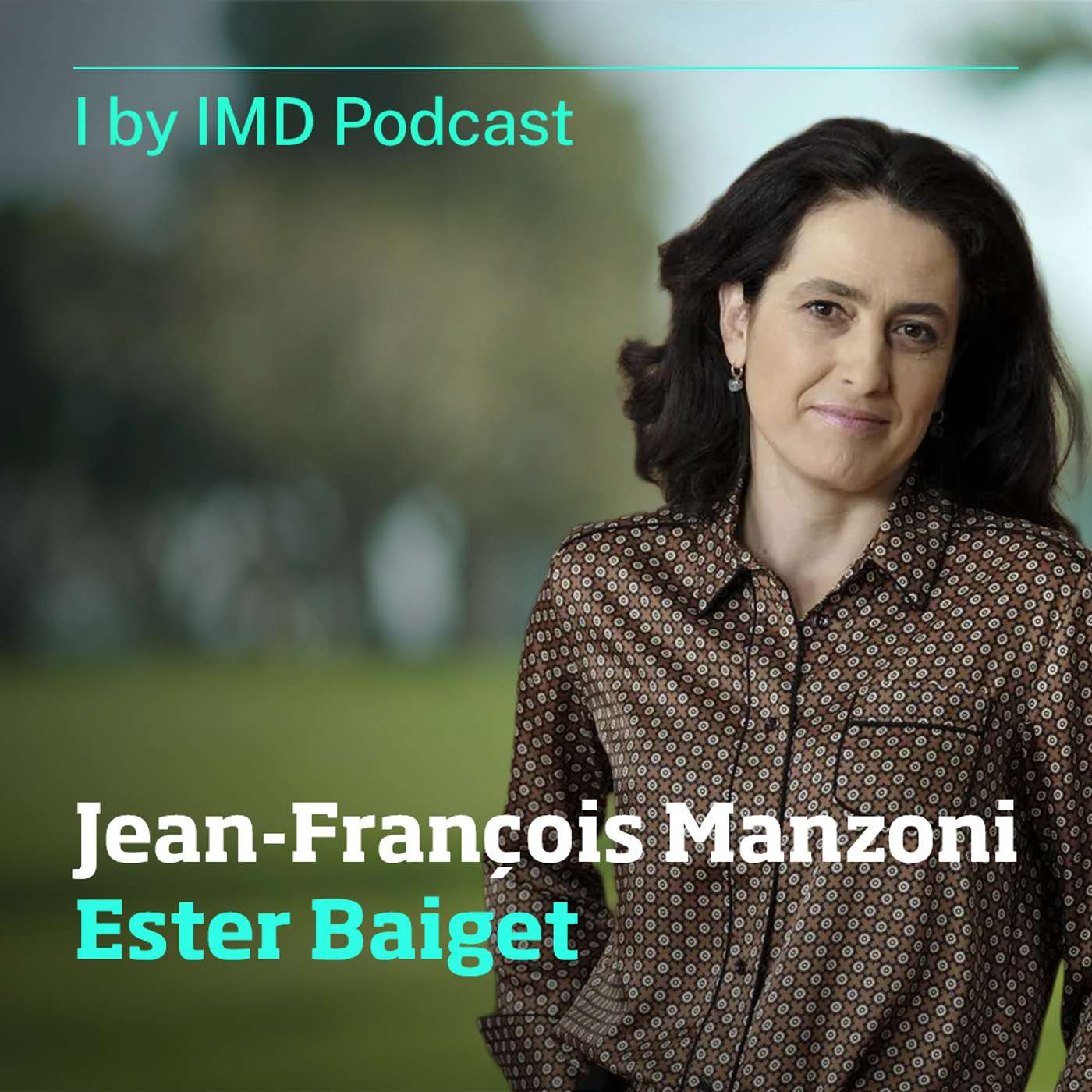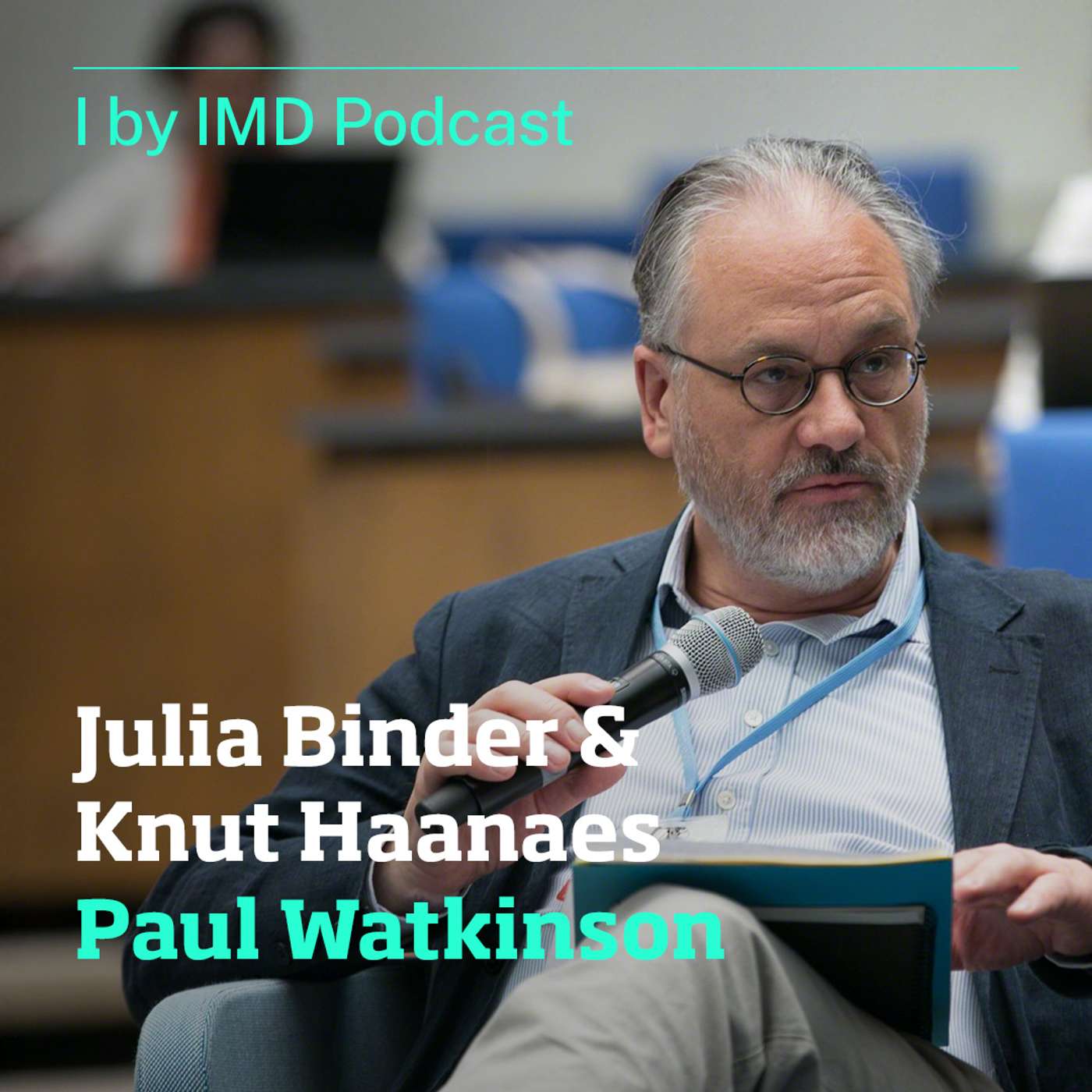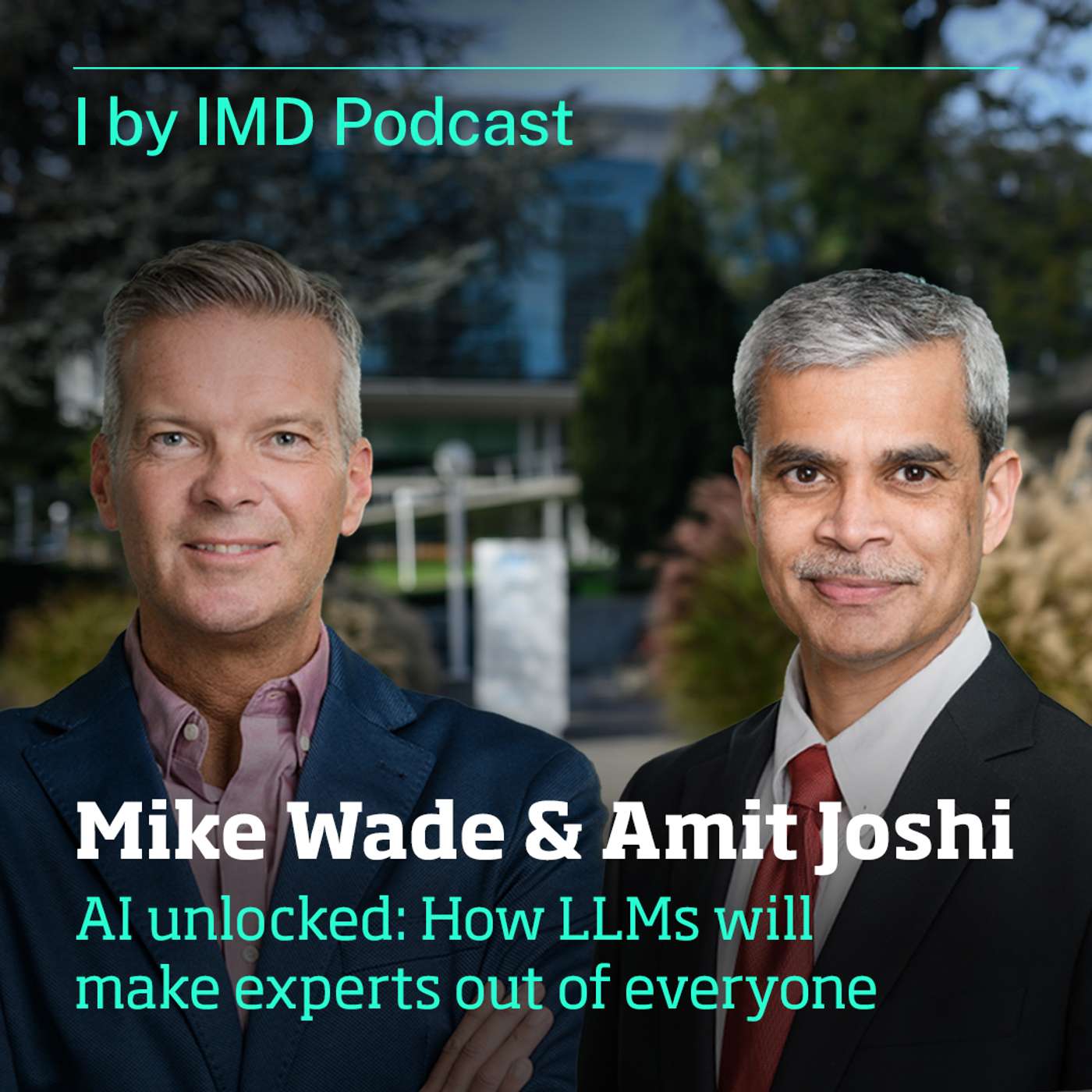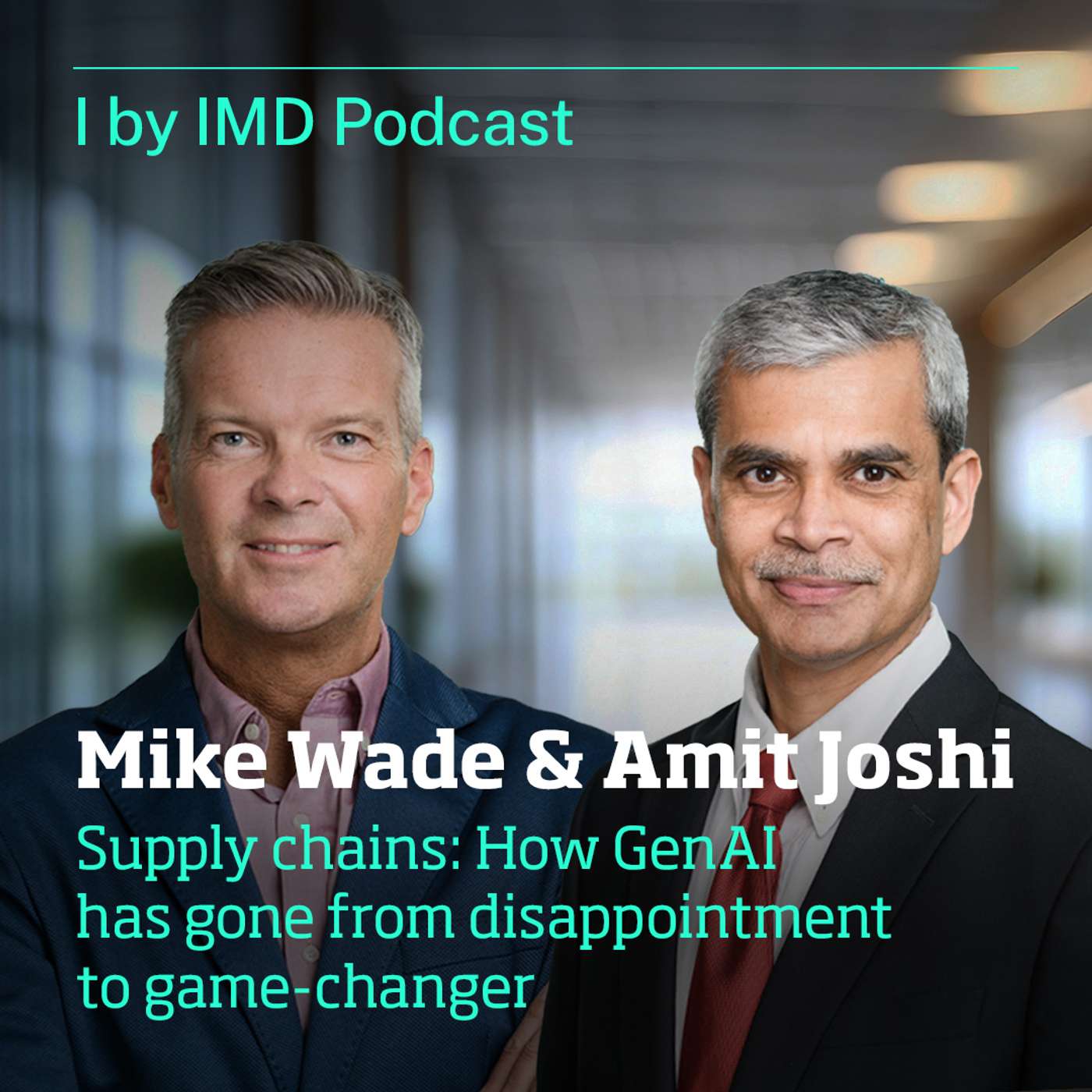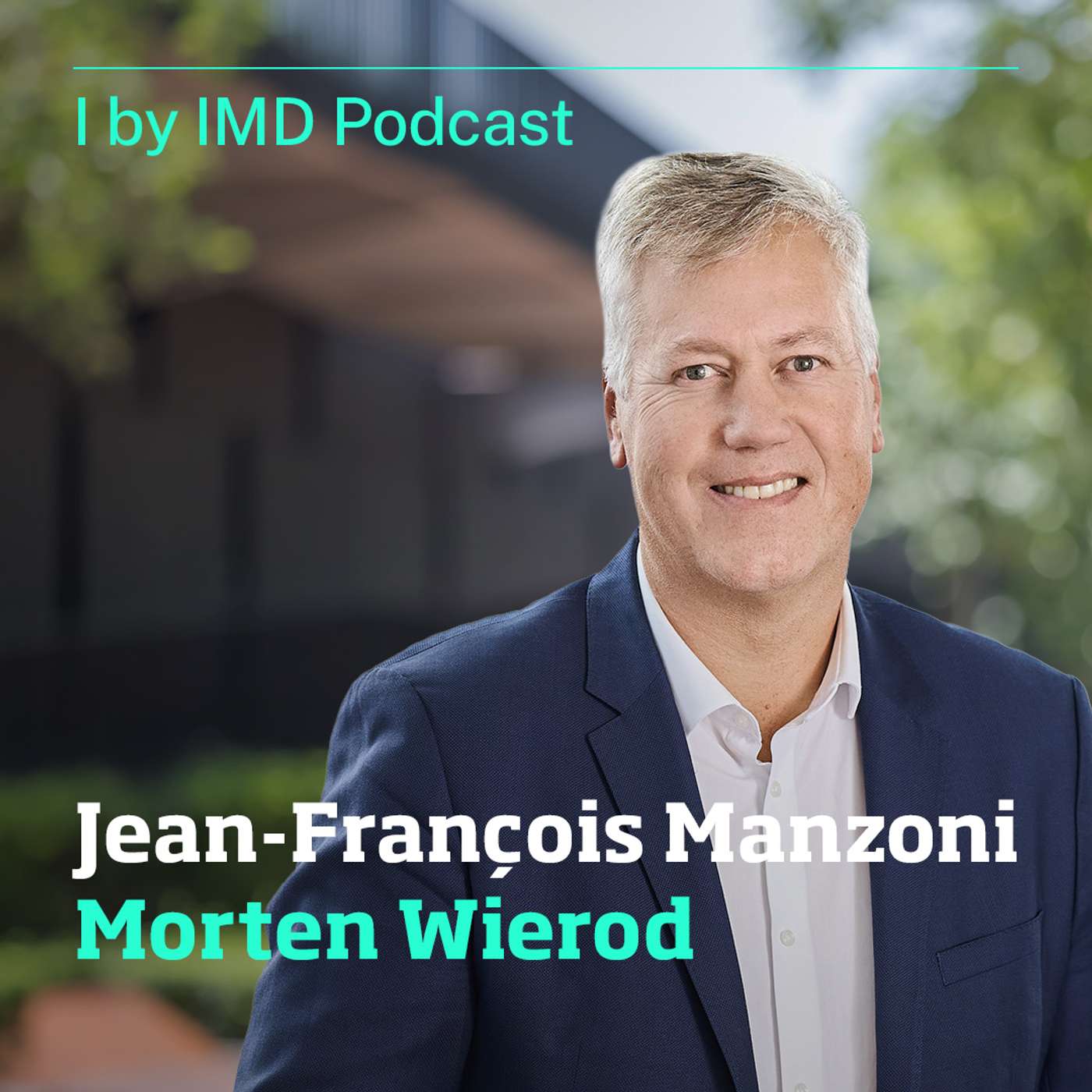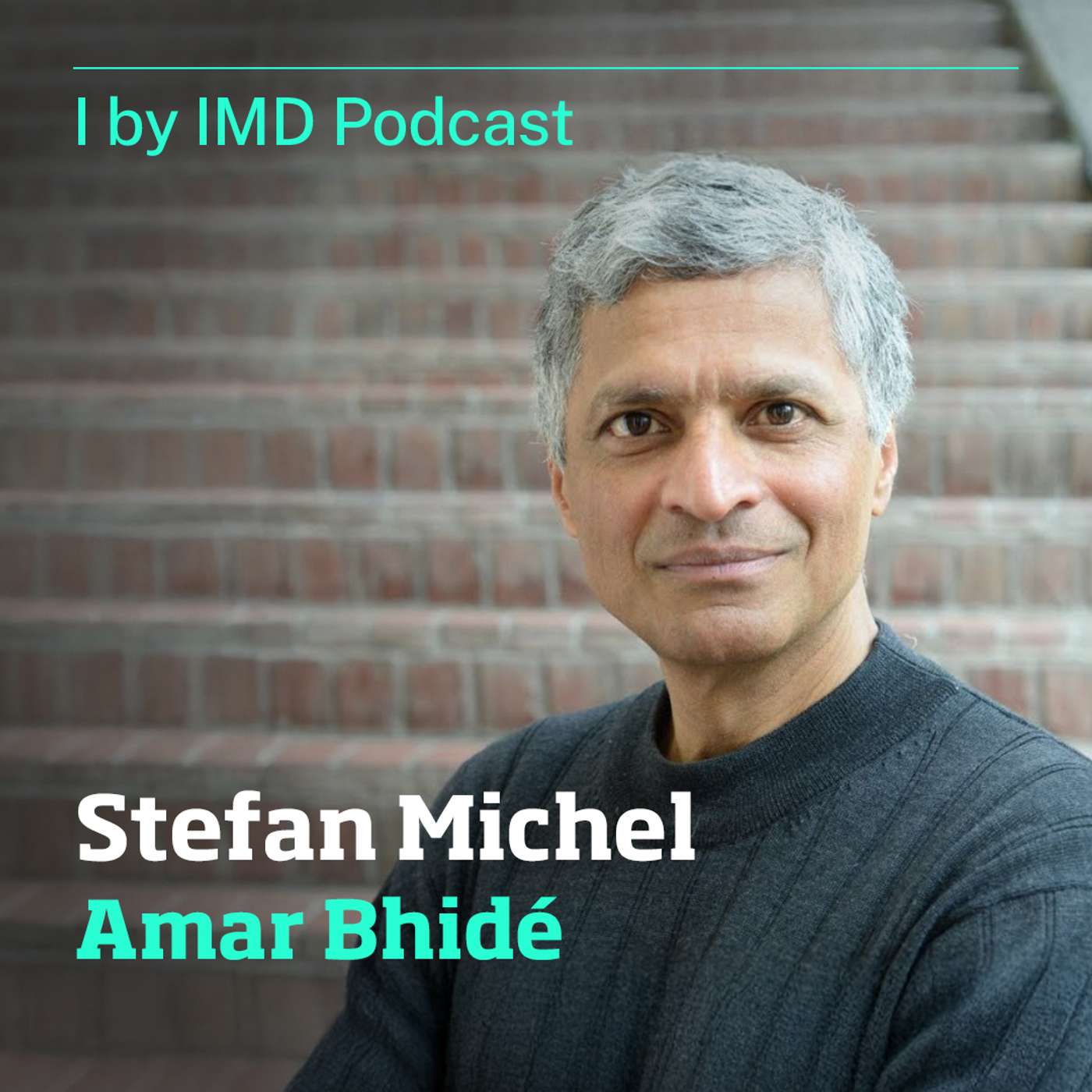Discover I by IMD
I by IMD

I by IMD
Author: IMD
Subscribed: 7Played: 196Subscribe
Share
© 2022 I by IMD
Description
The IMD Podcast Network brings you fresh insights and thought leadership on the evolving world of management and business. Each episode features conversations with global experts, industry leaders, and IMD faculty who share their perspectives on leadership, innovation, strategy, and the challenges shaping organizations today. Whether you’re an executive, entrepreneur, or lifelong learner, our goal is to provide practical knowledge and inspiration that you can apply directly to your professional journey
77 Episodes
Reverse
Construction is one of the biggest carbon emitters – and cement sits at the center of it. In this episode of Inside the Transition, IMD's Julia Binder and Knut Haanaes speak with Holcim’s Head of Operational Excellence Ram Muthu about what decarbonization looks like when you’re responsible for heavy equipment, waste streams, and execution across real plants.Muthu doesn’t romanticize the challenge. He argues the sector can move fast – but only if policy and infrastructure keep up, and if leaders stop treating transformation like a checklist. As he puts it: “Cement and building materials are probably one of the hardest to abate sectors,” “our industry still depends a lot on carbon capture and storage,” and “focus on execution is critical.”Inside the Transition delivers practical, executive-grade conversations on the energy transition. More info: https://www.imd.org/ibyimd/podcasts/inside-the-transition/ Our Guest:Ram Muthu is the Head of Operational Excellence at Holcim and a member of Holcim’s Executive Committee, focused on operational performance and the delivery of transformation at scale across a global building materials leader. LinkedIn: https://ch.linkedin.com/in/ram-muthu-112b46b
In this episode of Inside the Transition, IMD’s Julia Binder and Knut Haanaes welcome Marie-Laure Schaufelberger, Chief Sustainability Officer of Pictet Group, to explore the role of finance in driving the energy transition.Schaufelberger oversees Pictet’s responsible investment strategy, ESG governance, and stewardship, and brings a capital-markets perspective shaped by her work across thematic investing and system-level initiatives such as Building Bridges. The conversation examines where transition capital is flowing, how investors assess corporate credibility, and how expectations are evolving. For executives, the episode offers practical insight into what it now takes to attract and sustain transition finance.
In a moment of upheaval for international development, Katherine Milligan of the Graduate Institute and Carlos Álvarez Pereira, Secretary General of the Club of Rome, argue that hope – not fear – must guide what comes next. In 2025, the international development sector reached a tipping point.Deep cuts to U.S. aid and a rapidly shifting geopolitical landscape made clear that the international development system as we knew it was gone. What comes next depends on how we choose to respond. According to Katherine Milligan, Senior Lecturer at the Graduate Institute of International and Development Studies and elea Fellow at IMD, and Carlos Alvarez Pereira, Secretary General of the Club of Rome, the path forward begins not with fear or denial, but with psychological safety. They argue that creating space for honest reflection is essential to bridging the growing dissonance between official narratives and how humanitarian and development professionals are actually feeling. In this conversation, they explore the leadership skills, competencies, and sensemaking practices needed to unlock collective intelligence, so the sector can navigate transformation and maximize the chances for renewal and success.
Could an ecosystem-led approach to disparate industrial information technology systems build more resilient and efficient global supply chains? Caspar Herzberg, CEO of industrial software company AVEVA, argues that breaking down data silos across companies and sectors could benefit all stakeholders through what he calls “radical collaboration.”Herzberg details the increasing complexity of the industrial world, where thousands of systems across supply chains have locked-in value because they don’t communicate. He argues that to decomplexify and unlock this value, industries need radical collaboration—overcoming the fear of sharing data to realize a significantly bigger collective prize.Ultimately, Herzberg says that he is a pragmatist regarding AI’s societal impact, noting that the augmentation of the worker will be hugely productivity-enhancing. But he cautions that we must collectively establish boundaries on its use, as AI serves humankind.
In this episode, IMD Professor Zhike Lei speaks with Marcus Schindler, the former head of Novo Nordisk’s R&D operation, about driving innovation through transformation. Schindler reveals his journey is defined by “exploration” and details how he balances the need for immediate delivery with long-term discovery, stressing that success requires doing both.Novo Nordisk’s strong, patient-focused purpose attracts global talent, and Schindler explains the strategy behind establishing R&D hubs in places like Boston to leverage external innovation and entrepreneurial spirit. R&D teams, he says, need to prepare for the age of AI by becoming “bi-lingual” in both science and digital skills, and concludes that trust and a compelling value story are the currency for leading a transformative organization.
In this episode, IMD Professor Zhike Lei speaks with Marcus Schindler, the former head of Novo Nordisk's R&D operation, about driving innovation through transformation. Marcus reveals his journey is defined by "exploration" and details how he balances the need for immediate delivery with long-term discovery, stressing that success requires doing both.Novo Nordisk’s strong, patient-focused purpose attracts global talent, and Marcus explains the strategy behind establishing R&D hubs in places like Boston to leverage external innovation and entrepreneurial spirit. R&D teams, he says, need to prepare for the age of AI by becoming "bi-lingual" in both science and digital skills, and concludes that trust and a compelling value story are the currency for leading a transformative organization.
In the second episode of IMD’s sustainability series, Julia Binder and Knut Haanaes welcome Kunal Chandra, the Chief Strategy & Sustainability Officer at RWE. Chandra, an IMD alumnus, oversees one of Europe's largest clean energy investment programs and offers a unique perspective from his career across Shell, Siemens, and now RWE, on the accelerating energy transition. Chandra’s career began with a desire to travel, and evolved into a deep understanding of energy's fundamental role in human civilization. The discussion centers on the speed of the transition, the bottlenecks it creates, and the strategic choices executives must make in an increasingly electrified and contested energy world.
AI has leapt from obscurity to ubiquity, reshaping work and society. But its flaws run deep, forcing leaders to balance its promise with its dangerous limitations. From the frosty skepticism of AI’s early winters to the blazing hype of today’s workplace revolution, artificial intelligence has undergone a dramatic transformation. In this episode, IMD’s Didier Bonnet and Oxford University’s Michael Wooldridge take us behind the scenes of AI’s evolution, revealing how neural networks rose from the dead, why conversational AI dazzles but deceives, and what leaders must understand about the paradox at its core: a powerful tool that’s useful, but not always correct.As AI reshapes industries, boosts productivity, and quietly erodes certain roles, Wooldridge urges us to rethink how we work, learn, and lead. Whether you’re a CEO, educator, or everyday user, this conversation will challenge your assumptions and offer a grounded view of what AI can and can’t do. Tune in to explore the real story behind the headlines and discover how to navigate the new normal with clarity and caution.
Christophe Fouquet, CEO of ASML, tells Jean-François Manzoni how the world’s only EUV lithography machine maker became Europe’s most indispensable company – and what comes next.Few companies can claim to sit at the center of modern technological progress. ASML is one of them. The Dutch multinational is the only company in the world capable of producing extreme ultraviolet (EUV) lithography machines – the technology behind the smallest, fastest, and most powerful semiconductor chips.Without ASML, the world’s most advanced computing systems, from AI data centers to smartphones, simply would not exist. Tune in to find out more.
Oliver Zeidler is an Olympian who has successfully reinvented himself. After missing out on the Rio 2016 games as a swimmer, he switched sports to become a World Champion rower just three years later.In conversation with IMD’s Susan Goldsworthy, Zeidler discusses growing up in a family legacy of Olympic success, which "normalized peak performance," and the critical role of his grandfather as a "secure base" who inspired him to pursue both a competitive sports career and a business career, at Deloitte.Zeidler explains how combining an intellectual, office-based role with the physical demands of rowing has provided balance in his life. He talks about the key to his sustainable success and details a unique perspective on managing setbacks and embracing the "beginner's mindset". This powerful characteristic has allowed him to continuously explore and master new challenges, from switching sports at 20 to entering a demanding MBA program at the International Institute for Management Development (IMD) in Lausanne.
This week we feature a recent episode of IMD's sister podcast, Leaders Unplugged. IMD President David Bach sits down with Henrik Andersen, CEO of Vestas, for a raw conversation on Europe’s energy transition and the courage leaders need to navigate it.Andersen delivers a stark warning on Europe’s complacency: “Europe is 50% dependent on import of energy day in and day out. The truth is we import more LNG gas from Russia than we did in 2022.” He explains how China is building up its alternative energy capacities faster than any other nation – and dismantles hype around unproven solutions, such as hydrogen: “It is a little bit of a dream that is beyond a dream”.His purpose for being an outspoken leader is clear: “Our kids will say, ‘we will never forgive you because why did you keep talking about something that doesn’t happen?’” And he delivers a strong lesson to his peers: speak out, take blows, and act boldly in a volatile world.
This week, we bring you a powerful conversation from OWP Singapore, IMD’s flagship five-day program focused on orchestrating winning performance. In this fireside chat, Professor Omar Toulan sits down with Dan Luo, IMD MBA alumna (Class of ’99) and a trailblazing leader whose career spans global giants like Heinz, Lego, and Fonterra.Luo shares her remarkable journey from Wuhan to the world stage, navigating the Asian financial crisis, pivoting industries, and building a dynamic board portfolio. With deep experience in both B2B and B2C, she reflects on the leadership lessons that shaped her path: the power of democratic decision-making, handling conflict with clarity, and the importance of assembling and inspiring high-performing teams.From career inflection points to personal milestones, Luo’s story is one of resilience, reinvention, and impact. What does it really take to lead with purpose across borders and industries? Tune in to find out.
In conversation with IMD's Jean-François Manzoni, Novonesis CEO Ester Baiget discusses how the Danish biosolutions powerhouse uses advanced tech and its ‘library of strengths’ to transform food production and laundry processes.Novonesis is rapidly becoming the world leader in the field of biosolutions. By leveraging the power of microbiology with science, it is increasingly transforming the way the world produces, consumes, and lives. Born from the 2024 merger of enzyme and cultures specialists, Novonesis has integrated complex technologies and navigated regulatory roadblocks. But blending two corporate cultures requires more than science alone. For CEO Ester Baiget, the key is leadership rooted in humility, transparency, and a relentless focus on sustainable growth.
The energy transition isn't coming. It's already here. From boardrooms to trading floors, from tech labs to oil rigs, the shift toward clean energy is reshaping how business gets done. On "Inside the Transition," hosts Julia Binder and Knut Haanaes are bringing you conversations with the people at the front line of this historic shift of the energy transition. This week, Knut and Julia are joined by Paul Watkinson, a seasoned climate negotiator who enabled the adoption of the 2015 Paris Agreement. Just weeks before COP 30 in Brazil, they discuss the current state of global climate efforts and the need to overcome domestic political, social, and financial barriers to decarbonization. The conversation delves into the uneven pace of the energy transition, the pivotal but complex role of China in clean tech, Europe's regulatory challenges, and the essential need for a "just transition" to build public support.
Mike Wade and Amit Joshi welcome their colleague José Parra Moyano, Professor of Digital Strategy at IMD and contributor to their book GAIN. Jose shares his perspective on how Generative AI is not just an efficiency tool but a powerful enabler for non-technical business leaders. The conversation explores how Gen AI democratises data analytics, enabling managers to reduce uncertainty and make informed decisions without needing to code. They discuss the shift from using AI for cost savings to driving innovation, the evolving role of data science experts, and practical advice for listeners on how to leverage these tools to gain a competitive advantage.
In this episode of Mike and Amit Talk Tech, on the IMD Podcast network, our hosts discuss the transformative role of generative AI in supply chains. Joining the show is Professor Carlos Cordon, an IMD expert with over 30 years of experience in technology and strategy. Cordon reflects on his journey from the world of IT leadership to academia and explains why the supply chain remains both one of the most complex and most critical engines of modern business.The discussion examines why early experiments with generative AI in supply chain operations led to disappointment and how the rapid evolution of tools like Microsoft Copilot and DeepSeek has since transformed the landscape. From Excel spreadsheets to enterprise systems, Cordon explains how AI is now beginning to enhance accuracy, unlock deeper analysis, and make supply chain management more adaptive in a volatile geopolitical environment.
In this episode of the CEO Dialogue series, Jean-François Manzoni speaks with Morten Wierod, President and CEO of ABB, about how one of the world’s great engineering companies is transforming itself for the road ahead.With 110,000 employees, 170 factories, and more than $30 billion in annual revenues, ABB has long been central to electrification, automation, and industrial innovation.Now, under Wierod’s leadership, the company is driving a “leaner and cleaner” mission that connects competitiveness with sustainability.
On the IMD Podcast network, Mike Wade and Amit Joshi speak about the future of health, with Achim Plueckebaum, a contributor to their latest book GAIN.As a senior executive with decades of experience in the life sciences industry, Plueckebaum believes AI will have a transformative impact on medicine, pharmacology, and patient care. He emphasizes the importance of data privacy, ethical considerations, and the need for AI to serve patients effectively.Plueckebaum predicts significant AI-driven drug innovations within the decade, and even the discovery of entirely new treatments. From synthetic biology to personalized medicines, healthcare is set to change in a big way.
IMD Dean of Faculty and Research Stefan Michel sits down with Amar Bhidé - Emeritus Professor at Tufts University, and a founding member of the Center on Capitalism and Society at Columbia. Drawing on insights from his latest book, Uncertainty and Enterprise: Venturing Beyond the Known, Amar unpacks the vital difference between risk and uncertainty, why this matters for entrepreneurs, and how imagination shapes decision-making in business and innovation.In today’s business environment, true visionaries rely on contextual judgment rather than just statistical models. And though the evolution of AI will bring many opportunities, understanding its pitfalls remains key to success. Amar discusses these issues and the surprising role that routines play in enabling creativity and collaboration.
In this I by IMD podcast, Rohit Jawa, the former CEO of Hindustan Unilever, outlines how he is reshaping the company’s strategy to meet the evolving needs of India’s growing middle class, leveraging digital transformation, talent development, and a future-focused growth agenda. In conversation with IMD’s Jean-François Manzoni, Jawa explains how he is future-proofing the Indian consumer goods giant to take advantage of the nation’s rapidly expanding middle class. For nearly a century, Hindustan Unilever Limited (HUL) has been flourishing in the Indian subcontinent, growing in tandem with the nation. As India’s largest consumer goods company, the maker of Lux soap, Surf Excel laundry detergent, and Lipton tea has become deeply embedded in the country’s economic and cultural fabric, serving nine out of 10 Indian households and earning its place as the “crown jewel” in Unilever’s global portfolio. India is Unilever’s second-largest market after the US, contributing around 10% of the parent company’s turnover. While HUL draws on Unilever’s global R&D and brand strength, it has also become an exporter of talent and innovation, helping shape success in other markets. Tune in for a behind-the-scenes look at what drives the company’s success.


